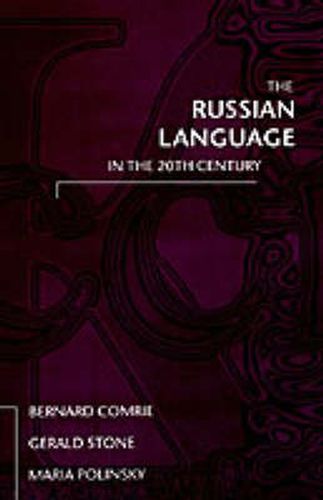Readings Newsletter
Become a Readings Member to make your shopping experience even easier.
Sign in or sign up for free!
You’re not far away from qualifying for FREE standard shipping within Australia
You’ve qualified for FREE standard shipping within Australia
The cart is loading…






Bernard Comrie and Gerald Stone’s The Russian Language since the Revolution (OUP 1978) provided a comprehensive account of the way Russian changed in the period between 1917 and the 1970s. In this new volume the authors, joined by Maria Polinsky, extend the time frame back to 1900 and forward to glasnost in the mid 1980s. They first consider changes in the pronunciation, morphology, syntax, and vocabulary of the language and then examine the effects of social change on the language in chapters on the changing staus of women, modes of address and speech etiquette, and orthography. They show that changes in all these areas have been very substantial, and explore the extent to which the standard language, as portrayed in dictionaries and grammars, coincides with the actual usage - both spoken and written - of educated Russians. The book will be of interest not only to students of Russian but more generally to sociolinguists and those with an interest in language change.
$9.00 standard shipping within Australia
FREE standard shipping within Australia for orders over $100.00
Express & International shipping calculated at checkout
Bernard Comrie and Gerald Stone’s The Russian Language since the Revolution (OUP 1978) provided a comprehensive account of the way Russian changed in the period between 1917 and the 1970s. In this new volume the authors, joined by Maria Polinsky, extend the time frame back to 1900 and forward to glasnost in the mid 1980s. They first consider changes in the pronunciation, morphology, syntax, and vocabulary of the language and then examine the effects of social change on the language in chapters on the changing staus of women, modes of address and speech etiquette, and orthography. They show that changes in all these areas have been very substantial, and explore the extent to which the standard language, as portrayed in dictionaries and grammars, coincides with the actual usage - both spoken and written - of educated Russians. The book will be of interest not only to students of Russian but more generally to sociolinguists and those with an interest in language change.